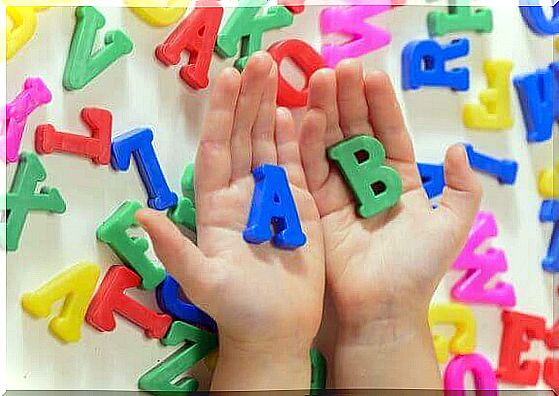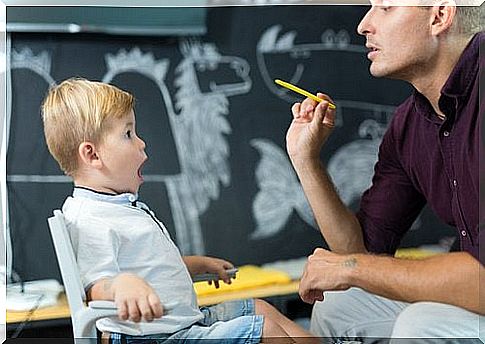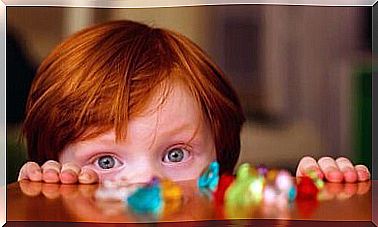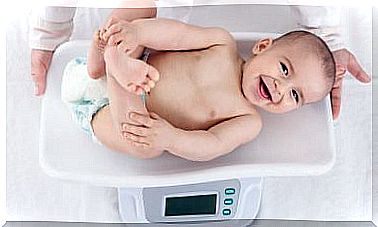5 Ways To Promote Language Acquisition In Children

Language allows us to easily interact with each other. Language development, even from the time the baby is in the womb, is important for the latter to be able to live in society with other people. In this article, we share 5 ways to promote language acquisition in children.
Language acquisition in children
Many parents worry that their children will not start saying words at the same time as their peers. Language acquisition can be affected by various things. Some have to do with the child’s health. More specifically, it is about whether a child’s nervous system, hearing or speech ability develops properly or not.
The relationships that children have with adults in their lives are also an influential factor. These relationships must be stimulating to strengthen children’s communication and motivation. They must facilitate interaction and encourage imitation as a learning tool. Children learn to speak, to a large extent, by listening to when their parents do just that.
Tips for promoting language acquisition in children
From 0 to 6 months
Talk to your baby, even if he or she is just chatting
From the moment a child is born, we must talk to it. This applies even if the little ones do not understand what we are saying or can answer.
One way to promote language acquisition in children is for others to begin communicating with them from the time they are babies. They already start to relate sounds to things in their environment. You can tell short stories that encourage the baby to mimic mouth movements and sounds.

Imitate the sound that your baby makes
When your baby starts chattering and gargling, we urge parents to imitate these sounds while looking the baby in the eye. This is how children learn to communicate; when an adult responds with an action similar to their own, it helps them understand that they have actually been understood.
From 6 months onwards
Facial massage
By performing facial massage on your child, you can help stimulate the muscles involved in speech, such as the cheeks, upper and lower jaw, etc. And it not only stimulates the muscles, but also strengthens the bond between parents and children through skin contact.
You can use this type of stimulation to familiarize children with different parts of the face and to expand their vocabulary. Pointing out different parts and saying what the parts are called makes it easier for them to remember them. While massaging your face, you can name each part. By doing so, you also contribute to language development.
Breathing exercises
Breathing exercises promote language acquisition in children. First, they learn to distinguish between inhaling, exhaling, and blowing. Then they go on to learn to control the intensity, duration and direction of these actions and are also able to pronounce different sounds correctly.
Ping pong balls are a great way to practice these things. Young children can blow on the balls to make them roll over a stable surface, such as a table. They can then experiment with how the balls move, how fast they move and what direction they move in depending on how they blow.
Another fun breathing exercise is to use musical instruments such as a flute, accordion or even a whistle. It teaches children to control the amount of air needed to blow and how hard and long they have to blow to make different sounds.

Support and an example to follow
To promote language development in children, the most important thing is to have good examples and support from the people around them. We must listen to our children with respect, without interrupting them when they talk. If they make a mistake, it is important to correct them patiently without being critical or teasing.
It is important to avoid talking about a child’s language development in a negative way when he or she is present. It only makes things worse, because it can make the child do the opposite of what we want. In addition, it can depress the child’s self-esteem.
There are many activities that strengthen language acquisition in children, but it is important that parents allow their children to develop at their own pace, while offering support and stimulation.









